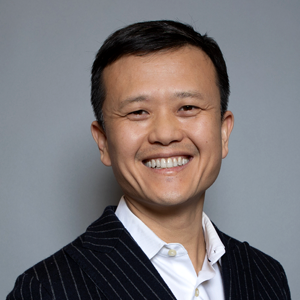Zhe Sage Chen is associate professor of psychiatry, and of neuroscience and physiology, at New York University School of Medicine. He is also a faculty member in the biomedical engineering department at NYU Tandon School of Engineering. He is founding director of the Computational Neuroscience, Neuroengineering and Neuropsychiatry Laboratory and program director of the Computational Psychiatry program at NYU. He works in a wide range of areas in computational neuroscience, neural engineering, machine learning and brain-machine interfaces, studying fundamental research questions related to memory and learning, nociception and pain, and cognitive control. He has authored a book and edited three others, his latest book, “Memory and Sleep: A Computational Understanding,” is slated to be published in late 2025.
Chen earned his Ph.D. in electrical and computer engineering from McMaster University and completed his postdoctoral training at RIKEN Brain Science Institute, Harvard Medical School and the Massachusetts Institute of Technology.



